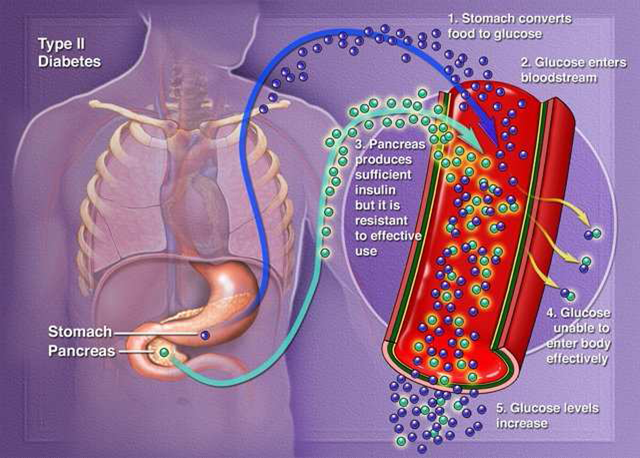The cholesterol-lowering drug fenofibrate cuts cardiovascular disease risks by 30 per cent in women with Type-2 diabetes, according to a new study from the University of Sydney.
“The finding is good news for women,” says the study’s chairman, University of Sydney Professor, Tony Keech.”The study shows that fenofibrate reduced the risk of dying from cardiovascular disease, or having a stroke or other adverse cardiovascular event by 30 per cent in women and 13 per cent in men.”
The leading cause of death in women, cardiovascular disease (CVD) is a constellation of ailments affecting the heart and blood vessels, including conditions such as coronary heart disease, stroke, and diseases of the small blood vessels, such as in the eyes and kidneys.
Published in Diabetologia, the five-year study of nearly 10,000 people with type-2 diabetes also assessed fenofibrate’s impact on a range of lipoproteins and triglycerides (circulating blood fats) that elevate the risk of cardiovascular events such as stroke and heart attack, and the need for medical procedures such as coronary artery bypass graft surgery.
Among type-2 diabetic patients with an elevated risk of cardiovascular disease – those with high levels of triglycerides and low levels of “good” cholesterol (high-density lipoprotein or HDL) – fenofibrate cut adverse cardiovascular outcomes by 30 per cent in women and 24 per cent in men.
A previous smaller US study had suggested that fenofibrate was not beneficial for women. This new study recommends that fenofibrate be considered as a useful way to reduce the risk of cardiovascular disease in both women and men with Type-2 diabetes.
High cholesterol is a serious health problem affecting one in three Australians. It is a leading risk factor for the deposition of circulating fats on the walls of blood vessels (atherosclerosis), which heightens the risk of heart attack and stroke.
Fenofibrate stimulates the action of an enzyme that breaks down triglycerides and low-density lipoproteins. Stimulating this enzyme increases the breakdown of triglycerides (another type of blood lipid) and low-density lipoproteins in the bloodstream and raises HDL cholesterol.
“Cardiovascular disease is the most common cause of death in women, almost three times more common than breast cancer,” says the study’s lead author, Associate Professor Michael d’Emden of the Royal Brisbane Hospital.
“Its symptoms are sometimes harder to diagnose in women and often the typical chest pain of a heart attack does not occur in people with diabetes.
“Therefore, better awareness among patients and their GPs is vital. Predominant symptoms include breathlessness, sweating, nausea, fatigue or arm pain.”
Fast facts
- Cardiovascular disease is a major cause of death among women
- Cardiovascular disease affects one in six Australians (3.7 million people)
- Women who have a heart attack are more likely than men to die from it
- Women are more likely than men to have a second cardiovascular event, such as a stroke or heart attack
The research was done by the Fenofibrate Intervention and Event Lowering in Diabetes (FIELD) study by investigators in Australia, New Zealand and Finland. It was led by Professor Anthony Keech from the Clinical Trials Centre at the University of Sydney, Australia, and Associate Professor Michael d’Emden, Endocrine Research Unit, Royal Brisbane Hospital, Brisbane, Australia.
Source: Michael C. d’Emden, Alicia J. Jenkins, Liping Li, et. al; Diabetologia, Favorable effects of fenofibrate on lipids and cardiovascular disease in women with type 2 diabetes: results from the Fenofibrate Intervention and Event Lowering in Diabetes (FIELD) study. DOI 10.1007/s00125-014-3344-3. Click here to download full pdf.















